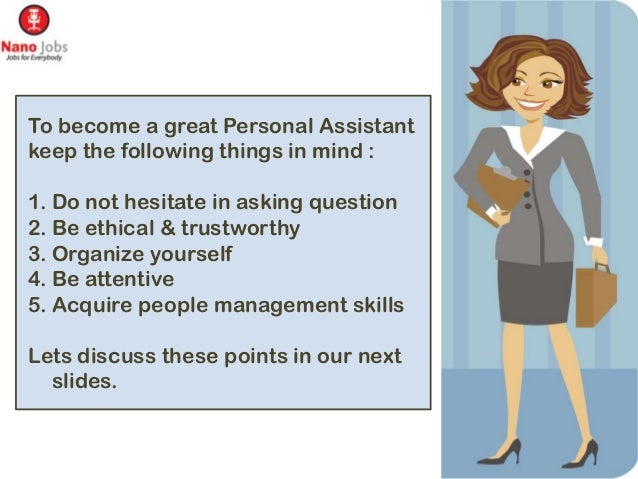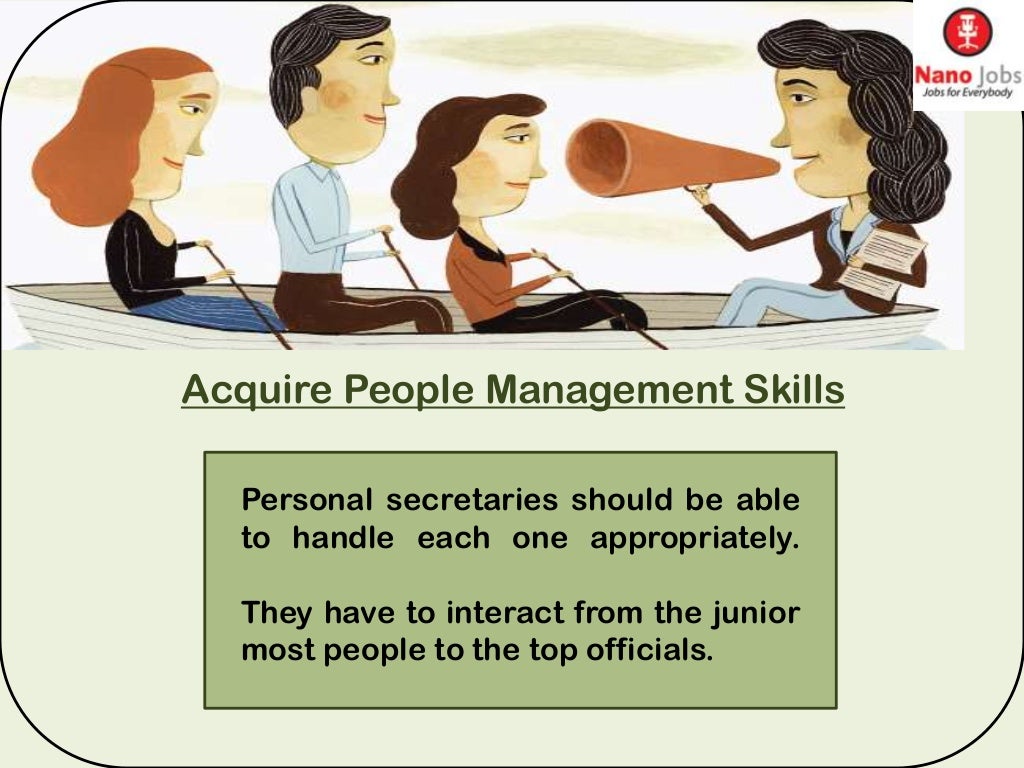How To Be A Great Personal Assistant

Imagine this: a whirlwind of meetings, calls, and deadlines threatens to engulf your executive, but somehow, everything runs smoothly. The secret? A brilliant personal assistant, navigating the chaos with grace and foresight, anticipating needs before they even arise. The life of a personal assistant is more than just scheduling; it's about being the linchpin that holds everything together.
This article delves into the art of becoming an exceptional personal assistant, exploring the key skills, traits, and strategies that separate the good from the truly great. It's about understanding the role’s evolving demands and learning how to not only meet but exceed expectations in today's fast-paced professional landscape.
The Foundation: Core Skills and Qualities
At its core, the role demands a blend of hard and soft skills. Organization is paramount. PAs must juggle multiple priorities and maintain meticulous records.
Communication skills are equally vital. Clear and concise communication, both written and verbal, is essential for interacting with internal teams, clients, and stakeholders.
Beyond the technical skills, certain personality traits are invaluable. Discretion is non-negotiable. Trustworthiness is the bedrock of the relationship.
Equally important are adaptability and resourcefulness. Every day presents new challenges, and a great PA finds solutions with creativity and efficiency.
Building the Relationship: Understanding Your Executive
A successful partnership begins with understanding your executive's work style, preferences, and priorities. Take the time to learn how they operate best.
Observe their routines, communication patterns, and decision-making processes. What stresses them out? What helps them focus? Knowing this is a key to anticipate their needs.
This understanding allows you to proactively manage their schedule, filter information effectively, and make informed decisions on their behalf.
Proactive Problem Solving
Don't just react to problems; anticipate them. This is what separates a good assistant from a great one.
Look ahead at the calendar. Identify potential bottlenecks or conflicts. Preemptively resolve issues before they escalate.
Consider "what if" scenarios. Prepare contingency plans. This proactive approach minimizes disruptions and demonstrates exceptional foresight.
Mastering the Tools: Technology and Time Management
In today's digital world, technology is your ally. Mastering productivity tools can significantly enhance your effectiveness.
Become proficient in calendar management software, project management platforms, and communication apps. Explore tools that streamline your workflow.
Effective time management is crucial. Prioritize tasks ruthlessly, delegate when possible, and learn to say "no" to requests that don't align with your executive's priorities.
"The key to success is not to prioritize what's on your schedule, but to schedule your priorities." - Stephen Covey
Beyond the Basics: Continuous Learning and Growth
The role of a personal assistant is constantly evolving. Staying current with industry trends and best practices is essential for continued growth.
Attend workshops, conferences, and online courses to enhance your skills and knowledge. Read industry publications and blogs.
Seek feedback from your executive and colleagues. Identify areas where you can improve and actively seek opportunities for professional development.
Ultimately, being a great personal assistant is about more than just skills and tasks; it's about building a strong, supportive relationship with your executive. It requires a unique combination of intelligence, empathy, and unwavering dedication. It’s a demanding role, but for those who thrive in it, the rewards are significant – the satisfaction of knowing you are a critical part of someone's success.














![How To Be A Great Personal Assistant How Do I Find a Good Personal Assistant? [2023 Guide] - 20four7VA](https://20four7va.com/wp-content/uploads/2023/03/how-do-i-find-a-good-personal-assistant.jpg)



